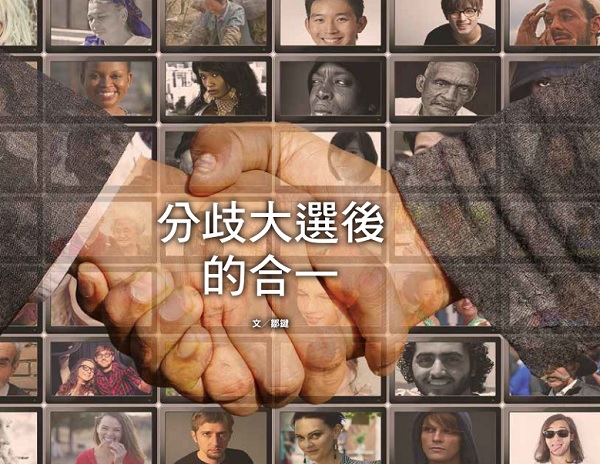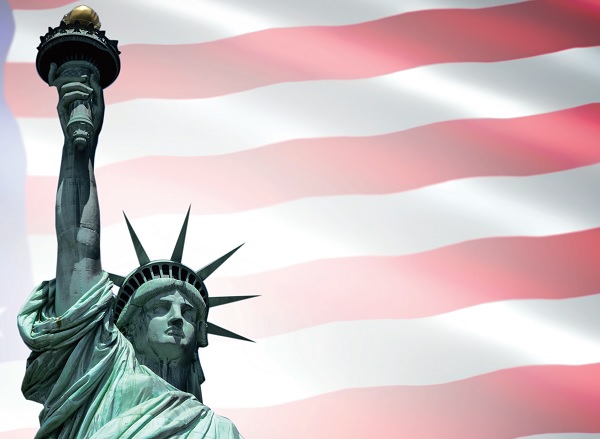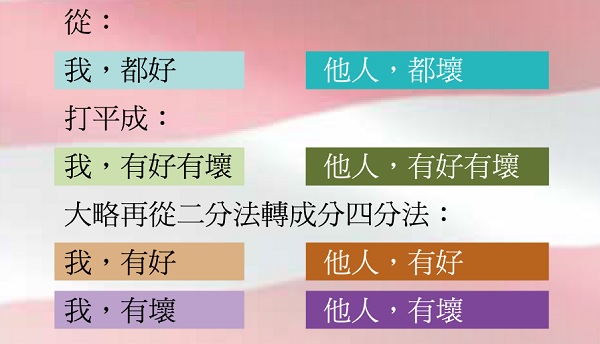Divided, post-election unity

Before the election in November 2020 until the dust settled in January 2021, it triggered unprecedented divisions and conflicts across the United States, and Christians were also involved in the whirlpool. There was excitement before, during, and after the election. In such a divergent situation, how should we view the road ahead? Here we sincerely give readers some balanced suggestions and a starting point for thinking.
Before and after the election, social media platforms were flooded with all kinds of news and information. Some resonate with good and evil deep within us; some irritate or inspire. When we receive and transmit messages, do we think deeply and discern clearly? On social media, shouldn’t we encourage dialogue, practice respect, acceptance, and allow for different opinions? We must have a responsible attitude when sending messages, try our best to bring harmony to society, and build a home that is good for each other.
You may wish to ask yourself: What is this unprecedented anger about? Who and which party are we angry about? Is the side you and I support really upright? For policies to be effective, they require long-term planning rather than focusing on immediate interests. But will political parties really seek the rights and interests of the American people, or is it just populism that paints an unrealistic vision? How many of the ideas appealed to are consistent with biblical teaching?
Everyone has good and evil sides deep inside. We are attracted to leaders and messages that resonate with us; some evoke love and kindness, others inspire selfishness and hatred. However, what is worrying is that when the message itself and the means of communication are manipulated, it may only arouse emotional reactions rather than profound reflection and belief.

▲Many people left the comfort zone of their hometowns and came to the United States with the "American Dream" in mind. Now they can enjoy many benefits in the United States because of the achievements of their predecessors.
Which faction are you and I on?
Most readers may consider themselves to be conservative, and I am no exception. I don’t like turmoil and prefer peace and quiet. But if you really don't like turmoil, why would you "risk" leaving China, Taiwan, Hong Kong, Southeast Asia and other places and immigrate to this strange United States?
In the turmoil surrounding this election, many people seem to have forgotten that a hundred years ago, Chinese and women did not have the right to vote, let alone have opinions on the election. Have you and I ever thought about the precious educational rights we or our children have received, as well as the government-subsidized health insurance that many people have, and how many people fought for these benefits and rights?
After a little reflection, I realized that the reason why we chose to settle in the United States is because here we have equal access to the best resources. Where does this equality come from? Aren’t they also a group of people who are dissatisfied with the status quo and tradition, and then reflect on how to change it, even at the cost of their lives, so that you, me and our descendants today can enjoy these rights?
可能有人會把「自由派」、「保守派」二分為善惡、對錯,或者更進一步,宣稱「只要是真正的基督徒,就應該是這一派或那一派」。真是如此嗎?我不都是對的,而他人或其他群體也不都是錯的。第一步,必須要從垂直對立的偏差,轉化成平等的心態—

This principle applies to many religious and social dilemmas, such as recognizing the characteristics of sects:

How much do you and I know about "liberals" and "conservatives"? I think the freedom that most people are opposed to is actually indulgence, including rampant crime, sexual abuse, vandalism, non-compliance with laws, or lack of public morality. Sadly, the powerful, including the government, can indulge without breaking the law, and the harm caused by this is widespread and deep. This is what Jesus also rebuked. However, it is undeniable that in this free country, everyone has the right to make free choices under the law. For example, during the epidemic, some people think they have the right to decide whether to wear a mask or not, and firmly oppose the government's rigid regulations. If you are dissatisfied with any social issue and choose to express your protest through demonstrations, this is also freedom.
It is true that individuals have the right to freedom guaranteed by the constitution, but when exercising their freedom, can others also benefit? Or, because of one's own freedom, it affects or even harms the freedom of others? The Apostle Paul once said, “All things are lawful, but not all things are profitable; all things are lawful, but not all things edify”? In fact, "unity" does not necessarily mean "uniformity"; "unity" can mean freely accepting each other in diversity and building a society that is beneficial to the public.
The name liberalism in the West mainly comes from the Reformation and Enlightenment eras, when scholars protested against many religious traditions. However, some conservative Christians today have equated the meaning of this name with departing from the truth. However, if you listen to the sincere "liberal" voices, the original intention is nothing more than to reflect on the negative traditions, thereby bringing about the democratic and scientific progress that is now recognized.
In his famous Gettysburg Address, President Lincoln stated that this country was "conceived in liberty." The foundation of Western education is based on the cultivation of reflection and does not advocate cramming. Those who are willing to reflect must also have the courage to admit their mistakes and repent. This is the beginning of a true understanding of Jesus and the foundation of good community. Reflection does not mean the total elimination of tradition, but it often means that after sorting out, one has a deeper commitment to good traditions. Only when the majority of people are willing to reflect, review and repent can constructive progress be achieved. Regardless of individuals or political parties, people or leaders, if they constantly emphasize that they are right, without humility and self-reflection, how can they expect change, let alone improvement?
Don't label others as left or right, liberal or conservative, as this will only create confrontation. Are we willing to think more deeply, "Why do the other party think that way? What is their starting point?" If we can compare ourselves with each other, criticize less and think more, and seek consensus, we can benefit more people. All in all, we should all be positive and constructive! We must keep our promises and reflect on everything; we must be willing to accept new ideas and changes, and we must also stick to traditions based on faith.
Although we are all imperfect, as followers of Christ we should strive to be kind, honest, and humble. Do not divide friends and foes based on party affiliation, and do not divide boundaries based on race, economic and social status.

▲We need to open our hearts, reflect seriously, and examine ourselves through the Bible. We must not avoid heart-wrenching truths and use theology or philosophy to cover up the selfishness of human nature.
Choose positive and constructive contributions
"Constructive conservatism" means self-control, loyalty and trustworthiness, consistency with others, and service without reward as motivation. Basically, keep your covenant with Jesus. This principle is not literal or theoretical, but arises from the depths of the spirit and is revealed in life. When Christians are committed to the truth in their hearts, their external practices can include cherishing their families, working faithfully and hard, keeping their own integrity, wisely managing all the resources God has given them, and caring for those in need in the community... These not only enable us to live in peace, but are also the core of a good society.
"Closed conservatism" is stubbornness that cannot be communicated. "Destructive conservatives" impose dogmas on others that they cannot even do themselves. The Gospels record that Jesus uses many parables to point to our blind spots, such as the Good Samaritan and the Prodigal Son. He was the most respected "good guy" in society, but he misunderstood the true meaning of kindness and mercy. What do you and I have to boast about before a holy God? What footing is there to accuse others of their injustice?
No matter what level of conservatism we have, we all have some. Why not tear down the walls, stay away from the destructive negativity, identify with the constructive positivity, and rebuild this society by combining commitment and reflection?
Before and after the election, you can always hear the saying that if a certain party wins, the country will be finished. Really? In the past two or three decades, the United States has had presidents from different political parties. Has the country ever been "finished"? According to my observation, in fact, most people pay little attention to politics during non-election years. Of course, the quality of government policies has an impact on our current lives and the well-being of our children and grandchildren. However, don’t we also believe that “God is in control”? Don’t we also say “pray for principalities and powers”? No matter who is leading this country, the truth and mission that you and I have received as followers of Christ have not changed.
I sincerely appeal to everyone: let go of the claim and occupation of power and interests. Those who are wealthy should, with a humble heart, empower the disadvantaged. The weak should use a humble heart, appreciate the sacrifices of others, work hard to catch up, and strive to join the ranks of contributors. When someone does good deeds, everyone should be grateful and imitate them, no matter which sect they are classified into. We need to open our minds, reflect seriously, and examine ourselves through the Bible. We need not to avoid the truth that pricks our hearts and use theology or philosophy to cover up the selfishness of human nature.
Every political philosophy has its positives and negatives. No party is always good or always right, and all have their limitations. No matter which party we consider ourselves to be, can you and I resolve the current confrontation? The point is not to take sides and attack each other, but to use the advantages of this concept to build a home where you and I can coexist and let all factions treat each other as equals. According to statistics in 2018, white people account for 78.3% of the U.S. population, but most of them do not vote based on their own self-interest on social welfare issues, but are willing to share the resources here with us. Only 3% of them Chinese. Shouldn’t we be deeply grateful and imitate him?
You and I should be uniters, not compromisers. Countries, societies, and groups all need unity. The founding fathers of the United States designed the republican system with a "public servant" spirit, allowing people with different opinions to check and balance each other to avoid going to extremes. This is the true basis of this country's past "GREAT". If we join this contributing team and keep our promises, reflect, be humble, contribute, and commit ourselves, won’t we also become a truly great member?
If we expect to be accepted, we should accept others first; if we expect to be respected, we should respect others first. Practice the teachings of the Bible rather than following the trends of the world. Coming before God through prayer is not about asking others to change, but seeing that you need to change. Let us always think about the true meaning of the gospel. No matter what the situation in the world is, we can humbly live in the truth and build a beautiful home together.
(This article was compiled by Zheng Duojia and Wu Xinhui from Professor Zou Jian’s series of lecture videos, and was personally revised and rewritten by the lecturer.)
Professor Zou Jian, was born in Taiwan and immigrated to the United States at the age of 13. He holds a Ph.D. from Fuller Seminary. Influenced by both parents being teachers, I also love teaching. He has taught in communities, churches, kindergartens, and seminaries, and has also served as dean of seminaries. I believe that God’s call is to devote myself to caring for the disadvantaged and to bridge the gap by studying people’s life stories.
